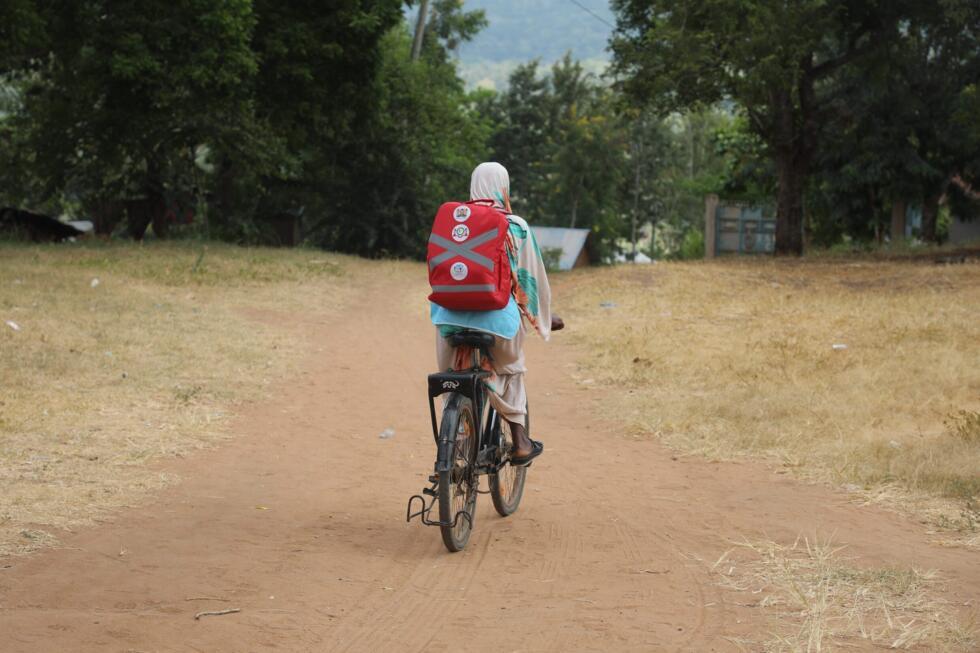
East Kenya – In the dim light of early morning in eastern Kenya, Lucia ties a shawl around her head, hauls a red backpack on to her shoulders and sets out on foot. The bag contains only a few essential medicines, but for the families in this remote village, it may as well contain miracles.
For more than 10 years, Lucia has been the closest thing to a doctor many here have seen.
She is a Community Health Worker, or CHW – part of a vast but often overlooked network of women who quietly sustain Kenya’s rural healthcare system.
Every day before sunrise, she walks up to 20 kilometres on dusty paths and rocky hills to visit people in their homes – checking on pregnant mothers, tending to sick children and referring emergency cases to distant health centres.
Women in rural Kenya urged to shun old ways and use antiseptic on umbilical cord
In places where clinics are scarce and roads barely exist, CHWs like Lucia are a lifeline. People know her, and they trust her – some owe their lives to her.
“I’ve been doing this for a long time,” Lucia says. “I’m not paid much, but I do it because these are my people. They have no one else to rely on.”

A life-changing gift
Lucia used to spend hours walking between homes, which meant fewer visits and longer days. Then she received a gift that changed everything: a bicycle.
It was given to her by World Bicycle Relief, a global charity working to empower remote communities through mobility. It has distributed more than 24,000 bicycles across Kenya to support health workers, schoolchildren and displaced individuals.
With her new bike, the time Lucia once spent trekking between appointments could now be spent reaching more patients, and getting to them faster.
“This bike is a lifesaver,” she says. “Before, I could visit maybe five homes a day. Now I can reach 15, sometimes 20. Every minute counts.”
“A good quality bicycle means a health worker can serve more patients, and it requires almost no maintenance," Maureen Kolenyo, regional director of World Bicycle Relief in East Africa, told RFI.
Goats for healthcare - an initiative for pastoralists in Kenya
Government support in Kenya is often lacking, leaving organisations such as World Bicycle Relief to step in and fill the gaps.
Esther Mwangi, a county health official, knows how crucial such interventions are. "People often underestimate how transformative a bicycle can be, especially in developing regions where the infrastructure supports it,” she said.
“We’re working closely with Kenya’s Ministry of Health to identify high-need areas. The pressing question now is: who will invest, and help scale up the solution?" Kolenyo added.
'I carry my people'
Lucia’s relationship with her community is intimate, born of countless hours spent listening, checking and comforting.
“We can always count on her. She saved my baby,” Nthenya, a mother of four, said
An elderly man who receives weekly check-ups calls her “more reliable than the dispensary", while one young woman in her final trimester of pregnancy said she sees Lucia as “a second mother".
US grant cuts could affect two million worldwide, disrupt HIV aid in Kenya
At the end of another long day, she mounts her bicycle and begins the steep, uneven ride home. The light is fading and the road is rough, but she is still smiling.
“Before, my legs would be shaking by now,” she says. “But this bicycle – it’s like my partner. It carries me, and I carry my people."








